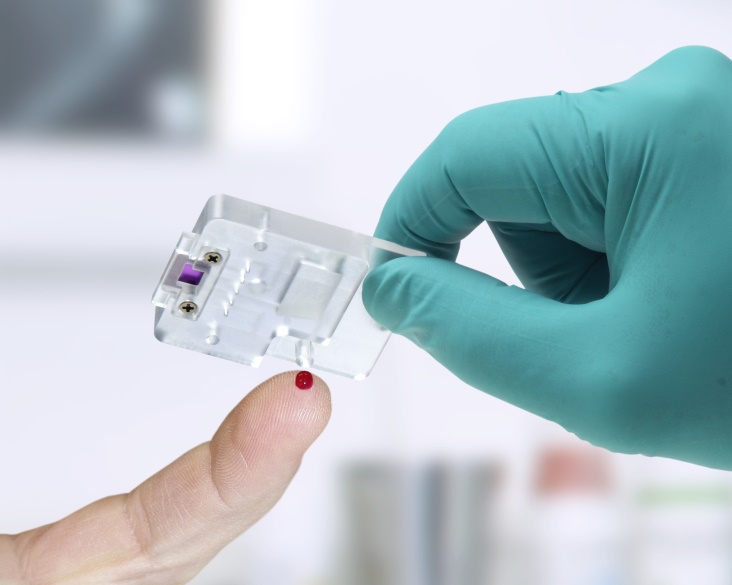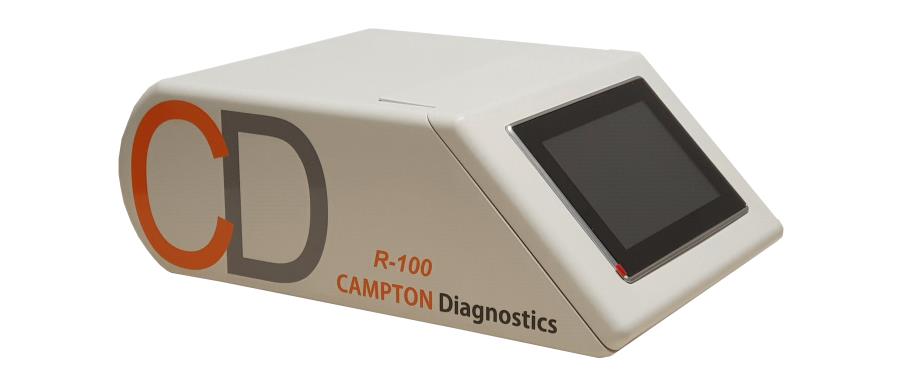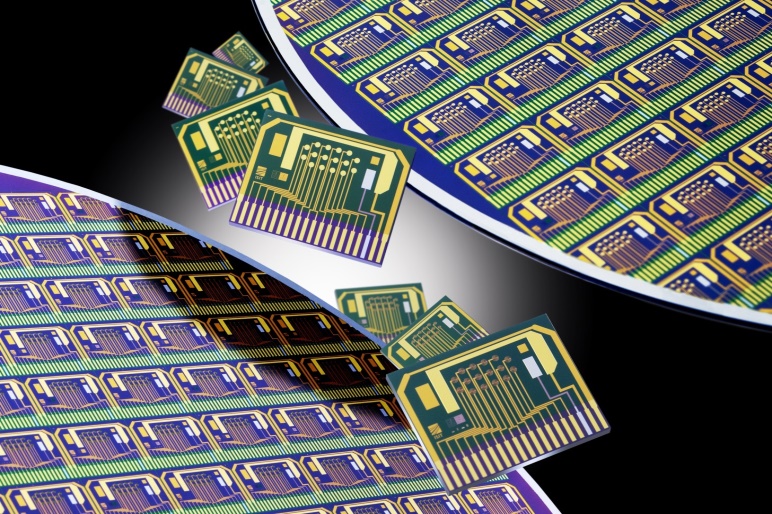Dr. Eric Nebling
Electrical biochips from ISIT for coronary diagnostics
CAMPTON Diagnostics, a spin-off from Fraunhofer ISIT, manufactures and markets complete measurement systems using the electrical biochips developed at ISIT. These are primarily suitable for point-of-care diagnostics, i.e. for on-site examinations of patients. In recent months, CAMPTON has focused its work on rapid tests for the corona virus (SARS-CoV-2). In the near future, a serological rapid test for the detection of antibodies against the virus in combination with DNA-based direct detection is to be launched on the research and development market. For the serological test, a few µl of capillary blood, e.g. from the fingertip, are sufficient. For the DNA-based test, for example, a throat swab is used as sample. The result of both tests should be available in less than 45 minutes, whereas the serological test alone requires less than 15 minutes.
In recent months, CAMPTON has focused its work on rapid tests for the coronavirus (SARS-CoV-2). In the near future, a serological rapid test for the detection of antibodies against the virus in combination with DNA-based direct detection is expected to be launched on the research and development market.
For the serological test, a few µl of capillary blood, e.g. from the fingertip, are sufficient. For the DNA-based test, for example, a throat swab is used as sample. The result of both tests should be available in less than 45 minutes, whereas the serological test alone requires less than 15 minutes.
As with other infectious diseases, PCR-based and serological tests are suitable for the examination of persons who may have become infected with the novel coronavirus (SARS-CoV-2). PCR technology plays an important role, especially in the early phase of a virus infection, when the viruses multiply strongly, and is used for direct pathogen detection. Serological tests, on the other hand, are used to determine antibodies in the blood that could have a neutralizing effect. These tests also allow scientists to determine how quickly antibodies are formed against the virus, which in turn can be important in identifying individuals who have developed immunity.
CAMPTON is working on a test system that can perform both test variants semi-parallel on a reader within a short time. A serological test with "Cartridge 1" can detect antibodies in the blood of patients against several virus antigens simultaneously. A few µl capillary blood, e.g. from the fingertip, are sufficient for this purpose. In parallel to this test, a viral RNA amplification reaction from e.g. a throat swab is performed (Direct-LAMP method). Subsequently and after the serological test, this LAMP sample is also examined in Reader 100 for viral genetic material with "Cartridge 2".
This provides information in about 45 minutes as to whether a person is infectious and carries the virus (LAMP is positive) and/or whether the person has successfully survived a previous infection and formed antibodies (serological test).
This might also be of interest to you
 Fraunhofer Institute for Silicon Technology
Fraunhofer Institute for Silicon Technology


